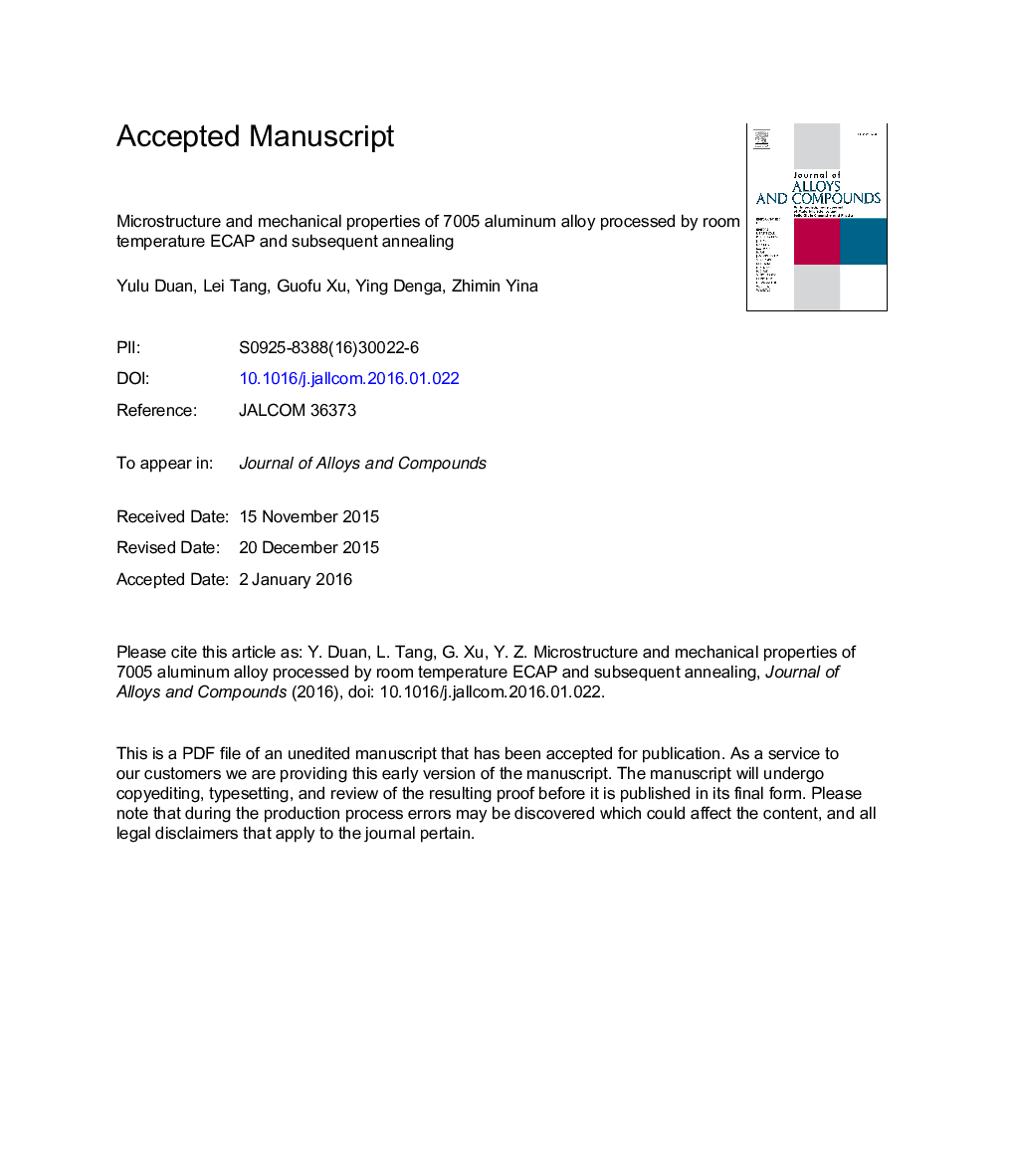| Article ID | Journal | Published Year | Pages | File Type |
|---|---|---|---|---|
| 1607173 | Journal of Alloys and Compounds | 2016 | 36 Pages |
Abstract
A coarse-grained microstructure of the extruded 7005 aluminum alloy was processed by equal channel angular pressing (ECAP) via route BC at room temperature. Microstructural evolution of the alloy processed by ECAP with different passes and subsequent annealing treatment were analyzed by using optical microscope, transmission electron microscope and electron backscatter diffraction. The results revealed that grains were refined gradually, and the low angle boundaries were progressively transformed to high angle boundaries by an increasing ECAP passes. After 7 ECAP passes, the average grain size decreased to â¼0.87 μm, and the fraction of high angle boundaries increased to â¼65.5%. Furthermore, the results of tensile testing indicated that the yield strength was remarkably increased from â¼170 MPa before ECAP to â¼389 MPa after 7 ECAP passes, and the corresponding tensile strength increased to â¼400 MPa after 7 ECAP passes, maintaining an appropriate elongation of â¼13%. After annealing treatment at 150 °C for 1 h, the samples processed by 7 ECAP passes obtained large elongation of â¼16%, and still maintained a high yield strength of â¼337 MPa and tensile strength of â¼350 MPa, which may be attributed to the recovery effects.
Related Topics
Physical Sciences and Engineering
Materials Science
Metals and Alloys
Authors
Yulu Duan, Lei Tang, Guofu Xu, Ying Deng, Zhimin Yin,
